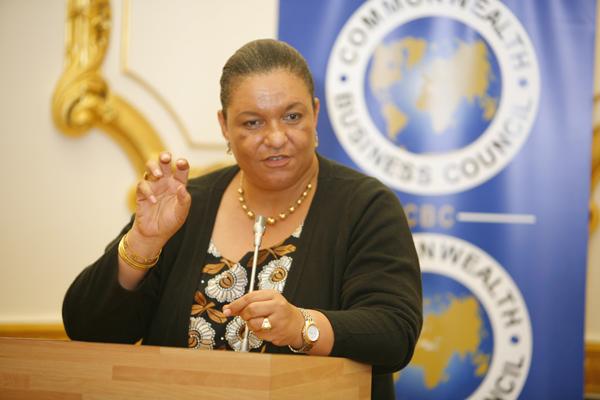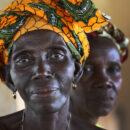Ghana: economic nationalism through petty trading laws – By Kissy Agyeman-Togobo, Songhai Advisory

The day after Ghana commemorated its 52nd anniversary since independence, not everyone was in a celebratory mood, especially not the Nigerian trading community. Ghana’s Minister for Trade and Industry, Hannah Tetteh is at the forefront of what some have speculated could become a diplomatic row with regional power Nigeria, as her ministry seeks to implement the provisions of Ghana’s 1994 Investment Promotion Centre (GIPC) Act 478.
The Schedule of The GIPC Act 478 1994 lists those enterprises which are reserved for Ghanaian citizens:
1. The sale of anything whatsoever in a market, petty trading, hawking or selling from a kiosk.
2. Operation of taxi service and car hire service. (A non-Ghanaian may undertake this service where there is a minimum fleet of ten new vehicles.)
3. All aspects of pool betting business and lotteries, except football pools.
4. Operation of beauty salons and barber shops.
The current debacle, which is dominating the airwaves in Ghana, relates to the first provision, following the Ministry of Trade and Industry’s decision to clamp down on the activities of non-Ghanaian traders. The law does, however, provide exoneration in the application of the Schedule under section 19 (3). Where trading involves someone who is not a citizen, the practice can continue if there is “an investment of foreign capital or its equivalent in goods worth at least US$300,000 by way of equity capital” and if the enterprise employs “at least ten citizens”. Clearly, this exception will arise in only a handful of cases so clearly, the spirit of the law pertaining to the Schedule and section 19 is to safeguard certain commercial activities for Ghanaians only.
D-Day
It was on Tuesday 3 July that the inter-agency task force established by the Trade Ministry started to close down stores of all non-Ghanaians who failed to meet the requirements of section 19 (3). The task force comprises representatives of the Ministry of Trade and Industry, the Customs Division of the Ghana Revenue Authority, the Ghana Immigration Service, the Social Security and National Insurance Trust (SSNIT), the Ghana Union Traders Association (GUTA) and the Ghana Investment Promotion Centre (GIPC).
Mounting Frustrations
GUTA has been applying pressure on the government of Ghana to act and at one stage even threatened to take the law into its own hands by forcing foreigners out of the petty trade industry. George Kwaku Ofori, head of GUTA has also warned the task force not to be seduced by bribes from foreign nationals. Ostensibly, when GUTA was asked to identify who the foreign nationals were when the task force was initially established, the “GIPC was rather looking to regularise their stay, for what?…if monies were not changing hands, how can this happen? It does not happen anywhere, except for this country”, Ofori told Business Guide.
GUTA has also criticised the government for moving too slowly on the issue. Indeed, implementation of the law which came into force almost two decades ago is only now being applied. According to Tetteh, the taskforce was not able to fully execute its mandate because of the stiff opposition it received from the Economic Community of West African States (ECOWAS), with member states, notably Nigeria, petitioning the regional body to try to block the exercise. Last week, the Chairman of the Diaspora Committee of Nigeria’s lower house, the House of Representatives, Mrs Abike Dabiri-Erewa, led a lobby team to the ECOWAS parliament, calling upon the regional body to intervene.
Nigerian Connection
Indeed, it is Nigeria which stands to lose most from the enforcement of this law, because the majority of non-Ghanaians operating in the petty trading space are Nigerian. But clearly, the law makes no specific reference to Nigerians, but rather speaks of “non-Ghanaians”, yet for Dabiri-Erewa, Nigerians are being targeted:
“I remember when the Ghanaian President came here, we discussed it and he said: “˜no, it is not targeted at you and don’t worry about it.’ The Ghanaian Minister of Trade was even in Nigeria and assured that it was not targeted at Nigerians, that Nigerians are okay, but throughout last week, Nigerian traders have been given the directive to leave within the week…Ghana should not take us back to 28 years ago when we had issues in West Africa”.
Ghana’s rationale is that trading, unlike foreign investment, does not involve the transfer of knowledge or technology so there is no value-added for Ghana if a foreign national were to do this job rather than a Ghanaian national. GUTA has been lamenting that the presence of non-Ghanaians in this space is taking away the livelihoods of Ghanaians in a sector which has been preserved for them. Tetteh is unequivocal that the planned clamp-down will go ahead and rejects any claims that the enforcement of this law contravenes the ECOWAS protocol on free movement of persons, the right of residence and the right of establishment.
Despite external pressures, it appears that Ghana’s Ministry of Trade and Industry is going full steam ahead to ensure that the spirit of the law is upheld. It is, however, curious that the provision of the law relating to petty trade – having been on the statute books for almost two decades – is only now being enforced. Sceptics will question the motivations of the National Democratic Congress-led government in taking a stand now, just five months before polling day. Clearly, if the task force succeeds in clamping down on the non-Ghanaian nationals, it will be a coup for the NDC government and political capital well spent. But in terms of Ghana’s relations with its neighbours, the ramifications of such a move may be much wider, potentially posing internal security challenges and placing a strain on diplomatic relations.
Kissy Agyeman-Togobo in Accra – Partner, Songhai Advisory LLP.






